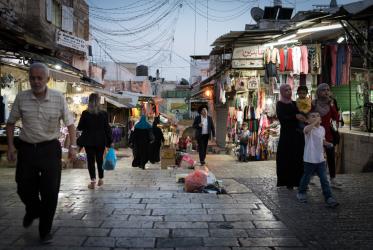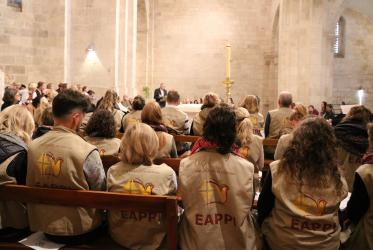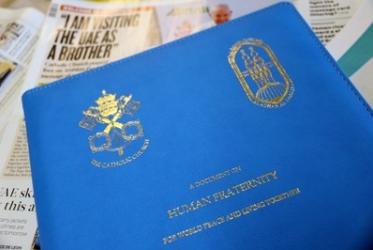Displaying 21 - 37 of 37
Women in development create space for hope in Egypt
15 June 2017
WCC gravely concerned over Israel’s travel ban
09 March 2017
Praying for one another, even when we disagree
02 March 2017
In Syria and Iraq, minorities must come out of the darkness
28 November 2016
Grand Imam calls for collaboration against violence and poverty
06 October 2016
WCC/UN conference calls for coordinated action on refugee crisis
20 January 2016
WCC urges responsibility for and support to the refugees in Europe
04 September 2015











